
September 17th is Constitution (or Citizens) Day in the United States and, in conjunction, this month's Diversity Book Display will focus on the U.S. Constitution.
Many civil rights, such as freedom of speech, voter rights and freedom of the press, are either a part of the Constitution itself, or were later added as amendments. The Supreme Court further defines these civil rights, often broadening who is included or protected.
LINKS
- Block Center's Responsible Voter's Guide to GenAI and Political Campaigning
- SLICE Voter Resources
- Constitution Day 2024: DIY Postcards for a Stronger Democracy
- Democracy Day
A physical book display is now available at Hunt Library with the selection rotating weekly. Some of the eBooks listed below also have a physical listing. Please check the availability.
Special thanks to our Materials Processing Coordinator, Leah Zande, for compiling this list. Learn more on the DEI events page. Feature image: "Woman voting in Cardoza High School in Washington, D.C." Original black and white negative by Marion S. Trikosko. Taken November 3, 1964. Colorized by Jordan J. Lloyd. Library of Congress, Prints and Photographs Division. Photo by Unseen Histories on Unsplash.
The Constitution Explained: A Guide for Every American
Hudson, David (2022)
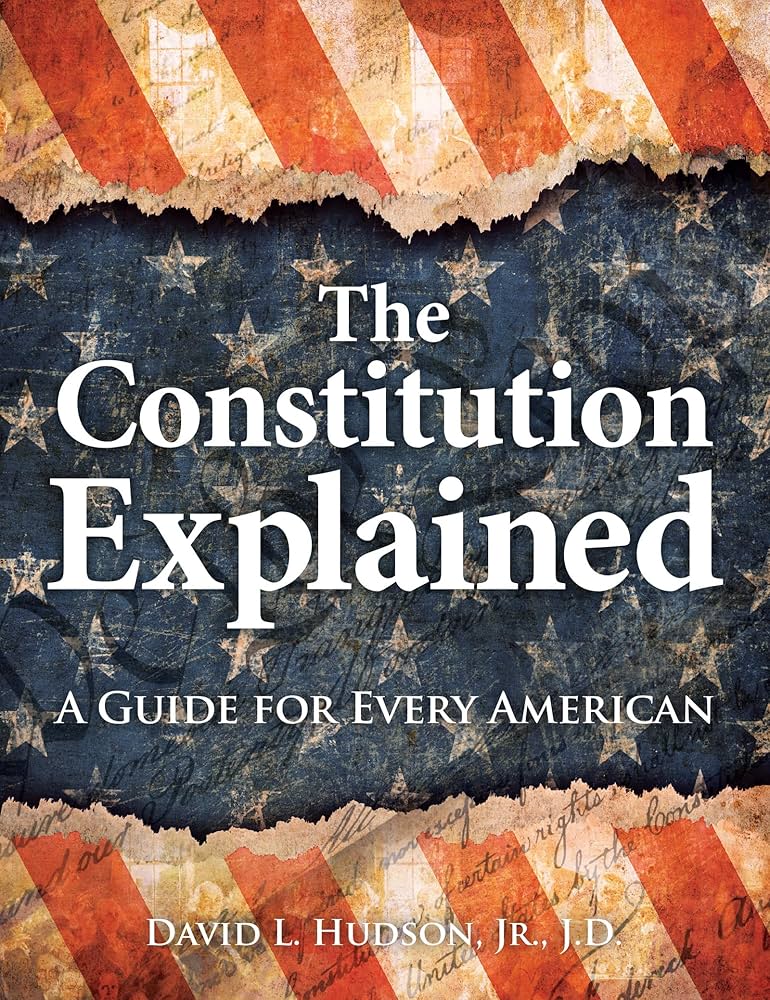 The United States Constitution is a short document, and it is written in general language, which leaves much of the meaning unwritten and open to interpretation. Dig into this important document and watershed in the history of governments.
The United States Constitution is a short document, and it is written in general language, which leaves much of the meaning unwritten and open to interpretation. Dig into this important document and watershed in the history of governments.
Explore the history, the various clauses, amendments, and interpretations. Understand your rights (and responsibilities)! From the Constitutional Convention to the creation of the Constitution and its eventual ratification, and to the Bill of Rights and the thorny constitutional issues of today, "The Constitution Explained: A Guide for Every American" covers the history, our founding fathers’ goals, and the varied interpretations of the Constitution that have informed the politics and functioning of the U.S. government. - Publisher's Description
Request this Title
The Bill of Rights in Modern America
Bodenhamer, David; Ely, James (2022)
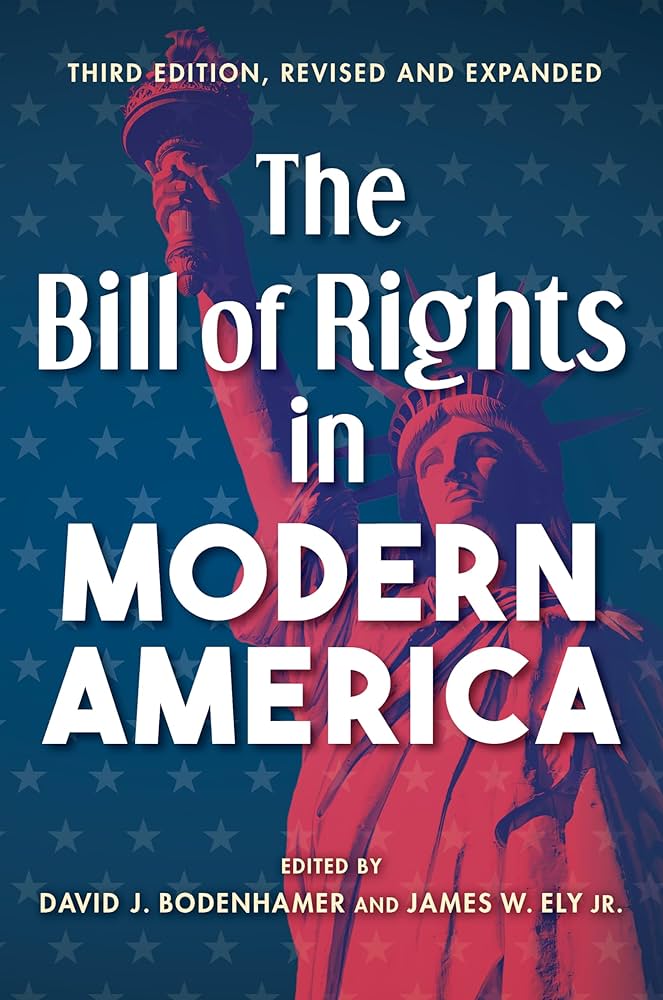 A newly revised and updated version of the 2008 revised edition with updated introduction, four new chapters.
A newly revised and updated version of the 2008 revised edition with updated introduction, four new chapters.
The editors were encouraged to update this edition with issues of diversity in mind. They have done so by including the expertise of more women and people of color. Also includes suggestions for further reading.
The audience for the work is primarily scholarly, though the work does lend itself to classroom discussion and course adoption as well. Readers would include legal scholars, legal anthropologists, and those who work in issues of modern rights and social justice. - Publisher's Description
Request this Title
Suffrage Reconstructed: Gender, Race, and Voting Rights in the Civil War Era
Free, Laura (2015)
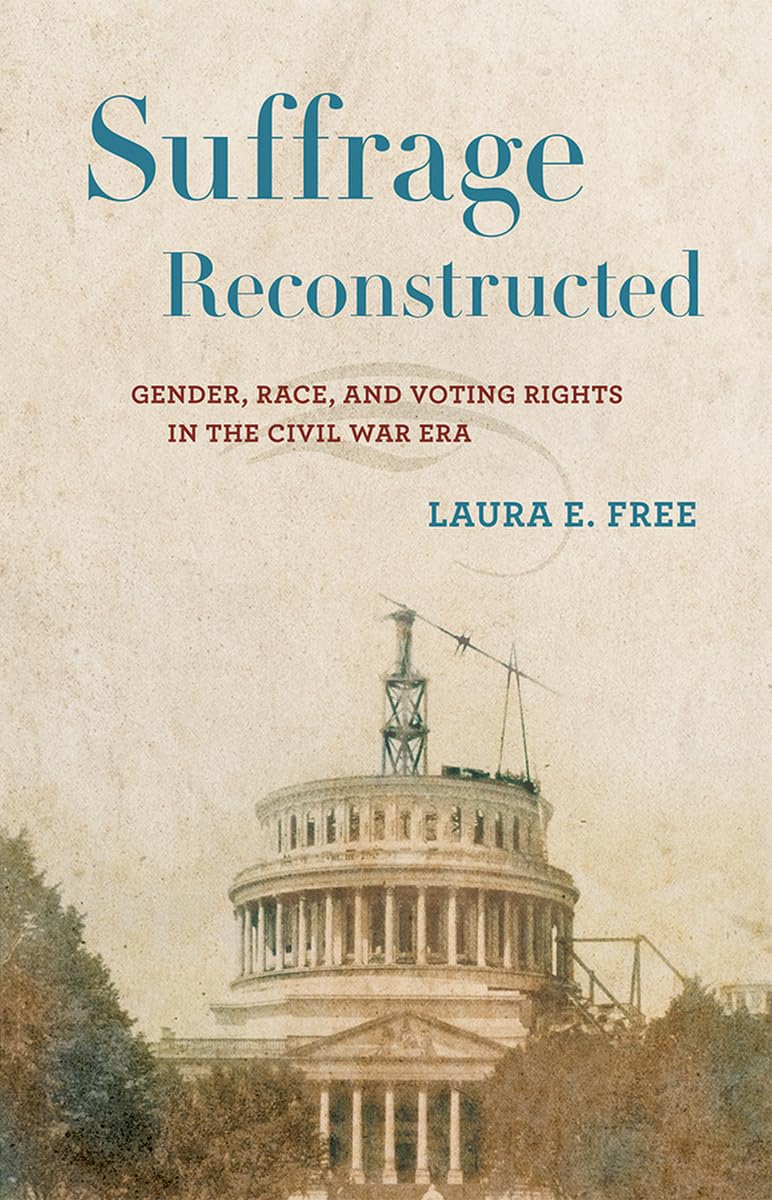 The Fourteenth Amendment, ratified on July 9, 1868, identified all legitimate voters as 'male'.
The Fourteenth Amendment, ratified on July 9, 1868, identified all legitimate voters as 'male'.
In so doing, it added gender-specific language to the US Constitution for the first time.
This study considers how and why the amendment's authors made this decision. Vividly detailing congressional floor bickering and activist campaigning, it takes readers into the pre- and postwar fights over precisely who should have the right to vote, and demonstrates that all men, black and white, were the ultimate victors. - Publisher's Description
Request this Title
Women's Suffrage: The Complete Guide to the 19th Amendment
Wayne, Tiffany (2020)
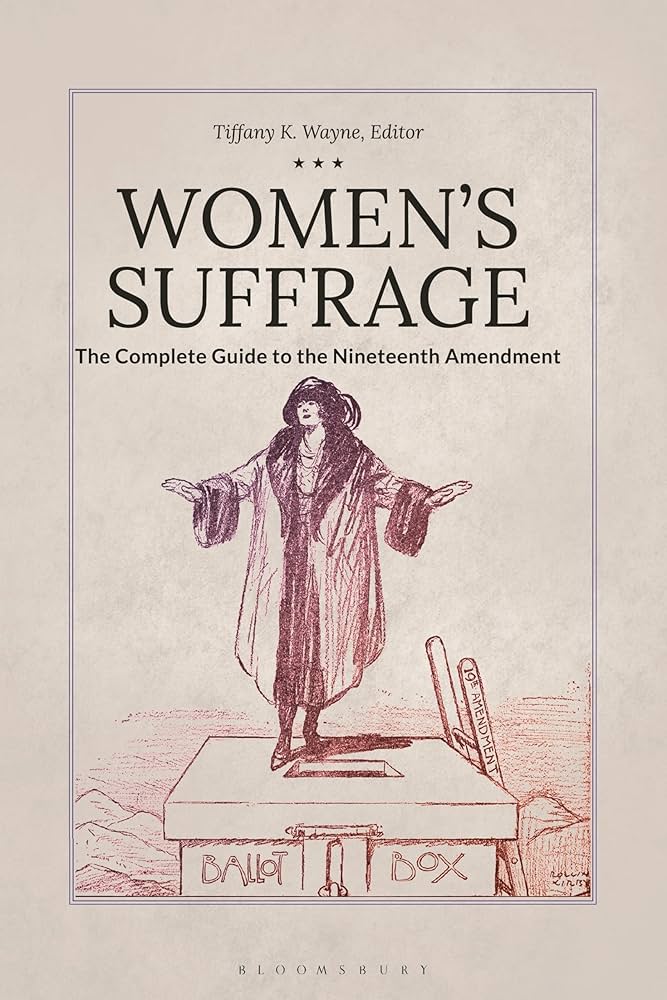 This is the "everything" women's suffrage and Nineteenth Amendment book, coming just as the country celebrates the centenary of the constitutional amendment that finally brought the vote to all American women.
This is the "everything" women's suffrage and Nineteenth Amendment book, coming just as the country celebrates the centenary of the constitutional amendment that finally brought the vote to all American women.
"Women's Suffrage: The Complete Guide to the Nineteenth Amendment" tells the dramatic story of American women's long fight for the vote and passage of the Nineteenth Amendment to the U.S. Constitution.
A veritable library on all things to do with suffrage and the Nineteenth Amendment, this reference tells the heroic stories of suffragists and brings to life the ideas and deeds of the organizations that made suffrage possible. - Publisher's Description
Request this Title
Ballot Blocked: The Political Erosion of the Voting Rights Act
Rhodes, Jesse (2020)
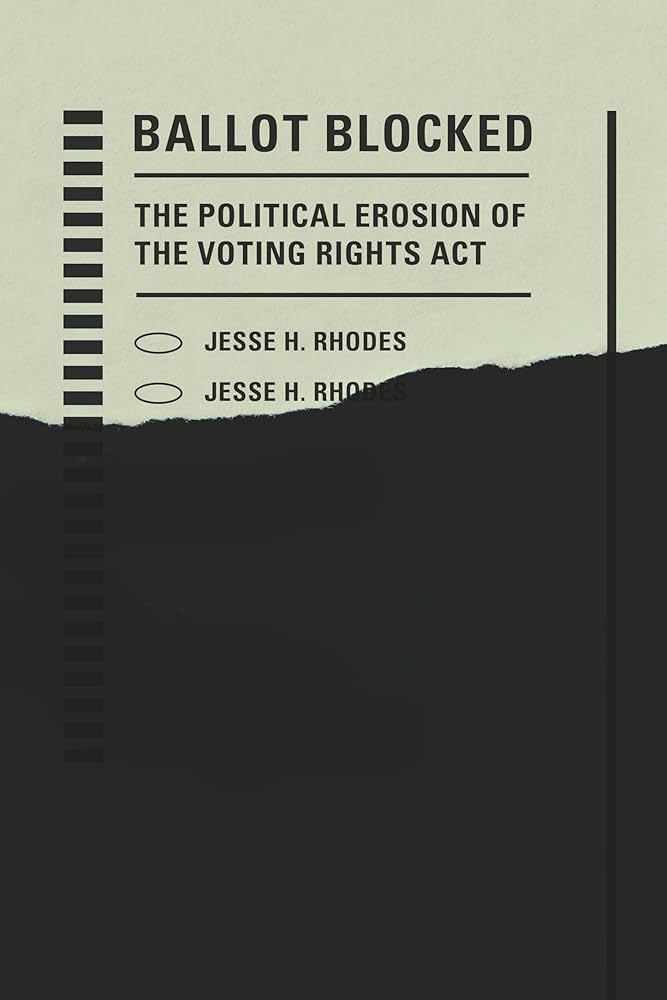 Voting rights are a perennial topic in American politics.
Voting rights are a perennial topic in American politics.
Recent elections and the Supreme Court's decision in Shelby County v. Holder, which struck down key enforcement provisions in the Voting Rights Act (VRA), have only placed further emphasis on the debate over voter disenfranchisement.
Over the past five decades, both Democrats and Republicans in Congress have consistently voted to expand the protections offered to vulnerable voters by the Voting Rights Act. And yet, the administration of the VRA has become more fragmented and judicial interpretation of its terms has become much less generous. - Publisher's Description
Request this Title
"Let us vote!": Youth Voting Rights and the 26th Amendment
Frost, Jennifer (2021)
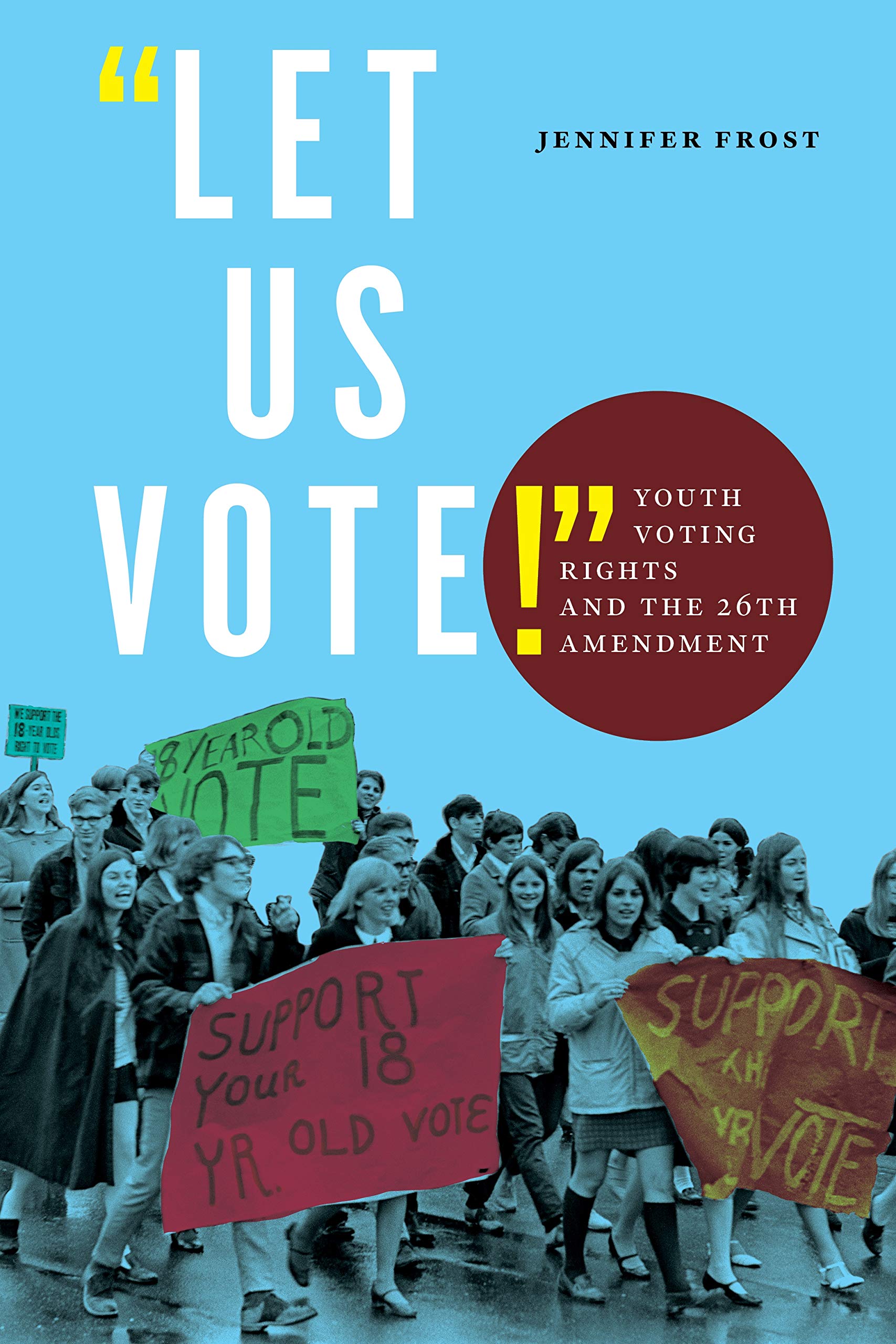 "Let Us Vote" tells the story of the multifaceted endeavor to achieve youth voting rights in the United States. Over a thirty-year period from World War II to the early 1970s, Americans, old and young, Democrat and Republican, in politics and culture built a movement and momentum for the 26th Amendment to the US Constitution.
"Let Us Vote" tells the story of the multifaceted endeavor to achieve youth voting rights in the United States. Over a thirty-year period from World War II to the early 1970s, Americans, old and young, Democrat and Republican, in politics and culture built a movement and momentum for the 26th Amendment to the US Constitution.
This amendment gave the right to vote to 18, 19, and 20-year olds in 1971, and it was the last time that the United States significantly expanded voting rights. The 26th Amendment means a major expansion of American democracy came right end of "the sixties."
Progress toward achieving youth suffrage built on the decade's many developments, most importantly the movement and legislation for African-American civil and voting rights. This story illuminates the process of achieving political change, with the convergence of "top-down" initiative and "bottom-up" mobilization, coalition-building, multiple arguments, and strategic flexibility leading to success. - Publisher's Description
Request this Title
The United States of Anonymous: How the First Amendment Shaped Online Speech
Kosseff, Jeff (2022)
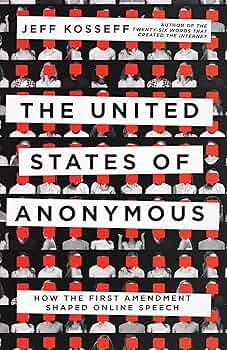 In "The United States of Anonymous," Jeff Kosseff explores how the right to anonymity has shaped American values, politics, business, security, and discourse, particularly as technology has enabled people to separate their identities from their communications.
In "The United States of Anonymous," Jeff Kosseff explores how the right to anonymity has shaped American values, politics, business, security, and discourse, particularly as technology has enabled people to separate their identities from their communications.
Legal and political debates surrounding online privacy often focus on the Fourth Amendment's protection against unreasonable searches and seizures, overlooking the history and future of an equally powerful privacy right: the First Amendment's protection of anonymity. - Publisher's Description
Request this Title
A Right to Lie?: Presidents, Other Liars, and the First Amendment
Ross, Catherine (2021)
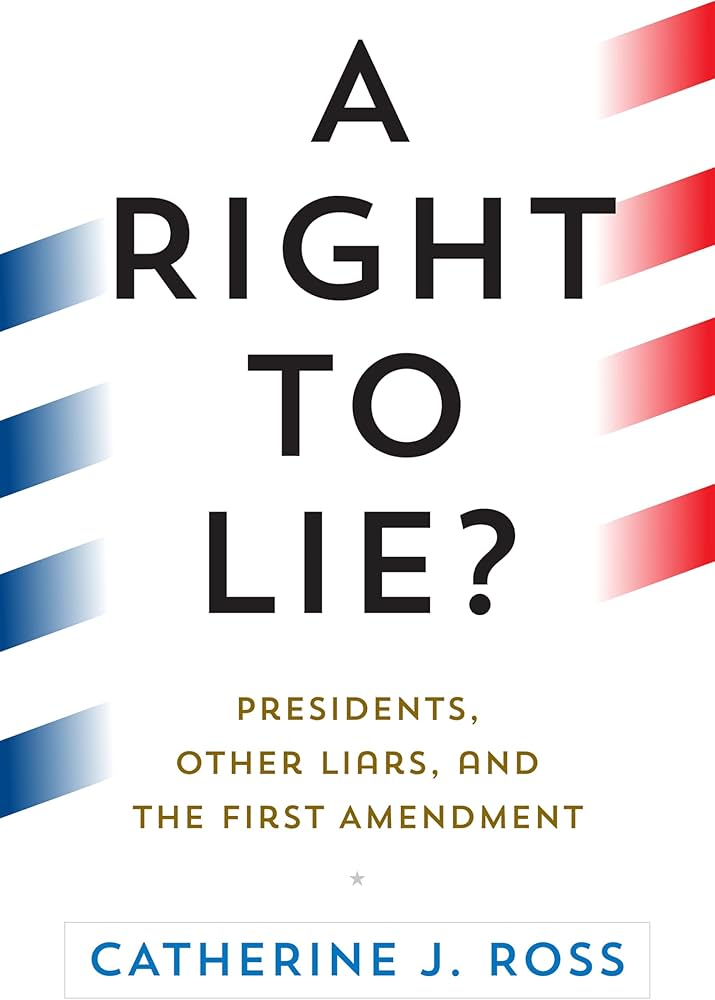 In "A Right to Lie?," legal scholar Catherine J. Ross addresses the urgent issue of whether the nation's highest officers, including the president, have a right to lie under the Speech Clause, no matter what damage their falsehoods cause.
In "A Right to Lie?," legal scholar Catherine J. Ross addresses the urgent issue of whether the nation's highest officers, including the president, have a right to lie under the Speech Clause, no matter what damage their falsehoods cause.
Does freedom of expression protect even factual falsehoods? If so, are lies by candidates and public officials protected? And is there a constitutional path, without violating the First Amendment, to stop a president whose persistent lies endanger our lives and our democracy? - Publisher's Description
Request this Title
Free Speech: And Why You Should Give a Damn
Zimmerman, Jonathan; Wilkinson, Signe (2021)
 In America we like to think we live in a land of liberty, where everyone can say whatever they want. Throughout our history, however, we have also been quick to censor people who offend or frighten us. We talk a good game about freedom of speech, then we turn around and deny it to others. In this brief but bracing book, historian Jonathan Zimmerman and Pulitzer Prize-winning political cartoonist Signe Wilkinson tell the story of free speech in America: who established it, who has denounced it, and who has risen to its defense. They also make the case for why we should care about it today, when free speech is once again under attack.
In America we like to think we live in a land of liberty, where everyone can say whatever they want. Throughout our history, however, we have also been quick to censor people who offend or frighten us. We talk a good game about freedom of speech, then we turn around and deny it to others. In this brief but bracing book, historian Jonathan Zimmerman and Pulitzer Prize-winning political cartoonist Signe Wilkinson tell the story of free speech in America: who established it, who has denounced it, and who has risen to its defense. They also make the case for why we should care about it today, when free speech is once again under attack.
Across the political spectrum, Americans have demanded the suppression of ideas and images that allegedly threaten our nation. But the biggest danger to America comes not from speech but from censorship, which prevents us from freely governing ourselves. Free speech allows us to criticize our leaders. It lets us consume the art, film, and literature we prefer. And, perhaps most importantly, it allows minorities to challenge the oppression they suffer. Free speech has too often been cast as the enemy of social justice, but that view is belied by our history. Disadvantaged Americans have consistently used free speech to defy the powerful. The only way to make a more just and equitable America is to allow every American to have their say. - Publisher's Description
Request this Title
Church and State
Ryden, David; Polet, Jeffrey (2022)
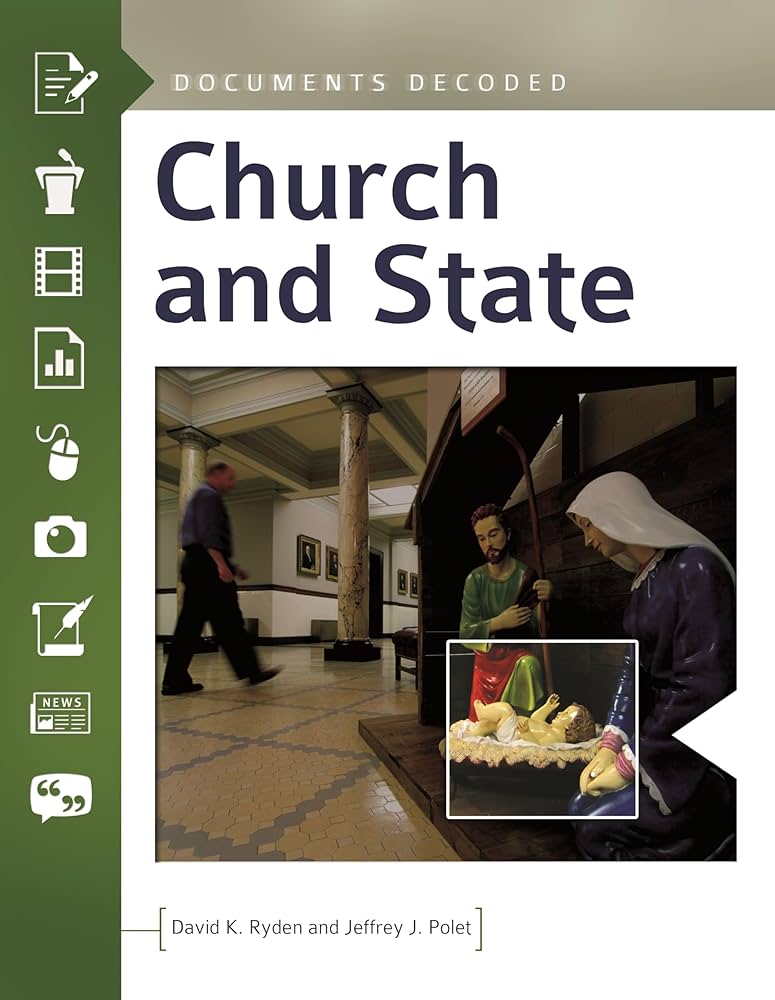 This thoroughly annotated document collection gives students and researchers an authoritative source for understanding the evolving political and legal relationship between church and state from colonial times to the present day. The First Amendment to the Constitution of the United States declares that "Congress shall make no law respecting an establishment of religion, or prohibiting the free exercise thereof."
This thoroughly annotated document collection gives students and researchers an authoritative source for understanding the evolving political and legal relationship between church and state from colonial times to the present day. The First Amendment to the Constitution of the United States declares that "Congress shall make no law respecting an establishment of religion, or prohibiting the free exercise thereof."
The Establishment Clause, meanwhile, declares a position of neutrality not only between differing religions, but between religious and nonreligious beliefs. The terms of the Free Exercise Clause, however, provide special protections to religious belief and practice. Thus the provisions of the two clauses can clash. In fact, differing political and legal interpretations of these clauses have resulted in some of the most hard-fought and contentious philosophical battles in American history. This book provides readers with convenient access to pertinent documents and court cases that enables a deeper understanding of the past and current balance between church and state and its political implications in the 21st century. - Publisher's Description
Request this Title
Sacred, Mundane, Profane: A Constitutional Perspective
Rutledge, Walter Scott (2021)
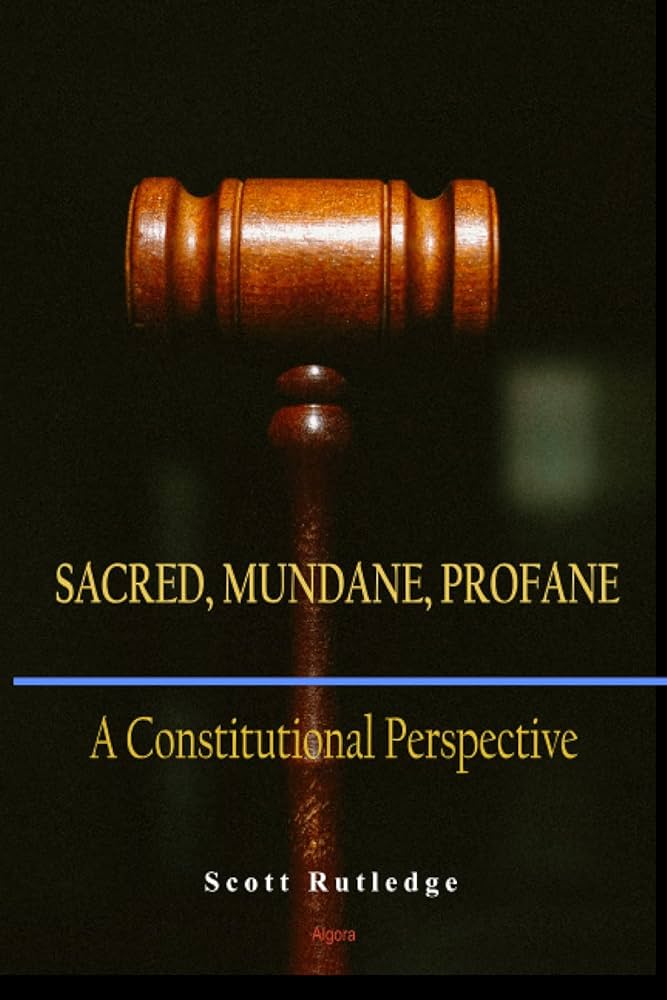 The Constitution was painstakingly crafted to offer guidance on questions and perennial conflicts, on issues where the secular and religious, the mundane and sacred, often flow into one another. Its authors sought to minimize ambiguities, but as they grappled with political architecture, they grappled unavoidably with spiritual ambiguity as well.
The Constitution was painstakingly crafted to offer guidance on questions and perennial conflicts, on issues where the secular and religious, the mundane and sacred, often flow into one another. Its authors sought to minimize ambiguities, but as they grappled with political architecture, they grappled unavoidably with spiritual ambiguity as well.
The ideal of religious liberty enshrined in the Constitution stands in vivid contrast to the tendencies inherent in today's "living constitution." This book discusses religious liberty in the largest sense. - Publisher's Description
Request this Title
Freedom of Religion
Leiter, Richard; Mersky, Roy (2021)
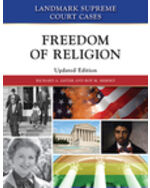 The First Amendment of the U.S. Constitution states, "Congress shall make no law respecting an establishment of religion, or prohibiting the free exercise thereof..." This book contains concise, straightforward summaries, analyzing and explaining groundbreaking court cases on the issue of freedom of religion. - Publisher's Description
The First Amendment of the U.S. Constitution states, "Congress shall make no law respecting an establishment of religion, or prohibiting the free exercise thereof..." This book contains concise, straightforward summaries, analyzing and explaining groundbreaking court cases on the issue of freedom of religion. - Publisher's Description
Request this Title
American by Birth: Wong Kim Ark and the Battle for Citizenship
Nackenoff, Carl; Novkov, Julie (2021)
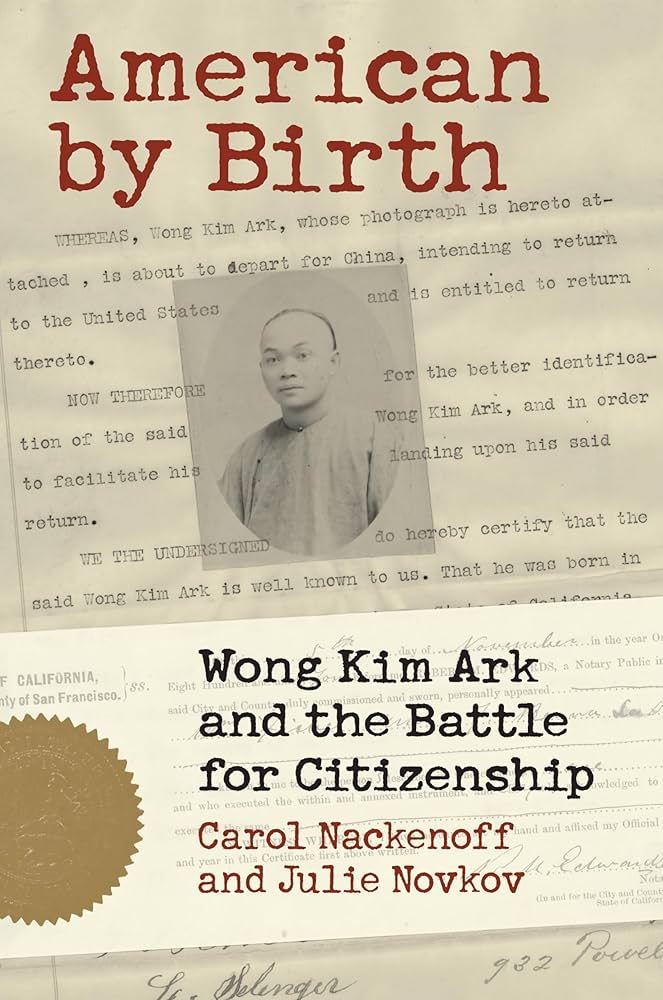 In his infamous opinion in Dred Scott v. Sandford (1857) Chief Justice Taney had denied that any American descended from Africans, whether free or slave, could claim citizenship. The Fourteenth Amendment's citizenship clause repudiated this principle.
In his infamous opinion in Dred Scott v. Sandford (1857) Chief Justice Taney had denied that any American descended from Africans, whether free or slave, could claim citizenship. The Fourteenth Amendment's citizenship clause repudiated this principle.
The Fourteenth Amendment's connection to birthright citizenship, however, is not built exclusively through the lives and fortunes of black citizens. It requires an understanding of the Chinese experience of migration to the United States, and Wong Kim Ark v. United States (1898) lies at the center of this story. - Publisher's Description
Request this Title
Armed Citizens: The Road from Ancient Rome to the Second Amendment
Shusterman, Noah (2020)
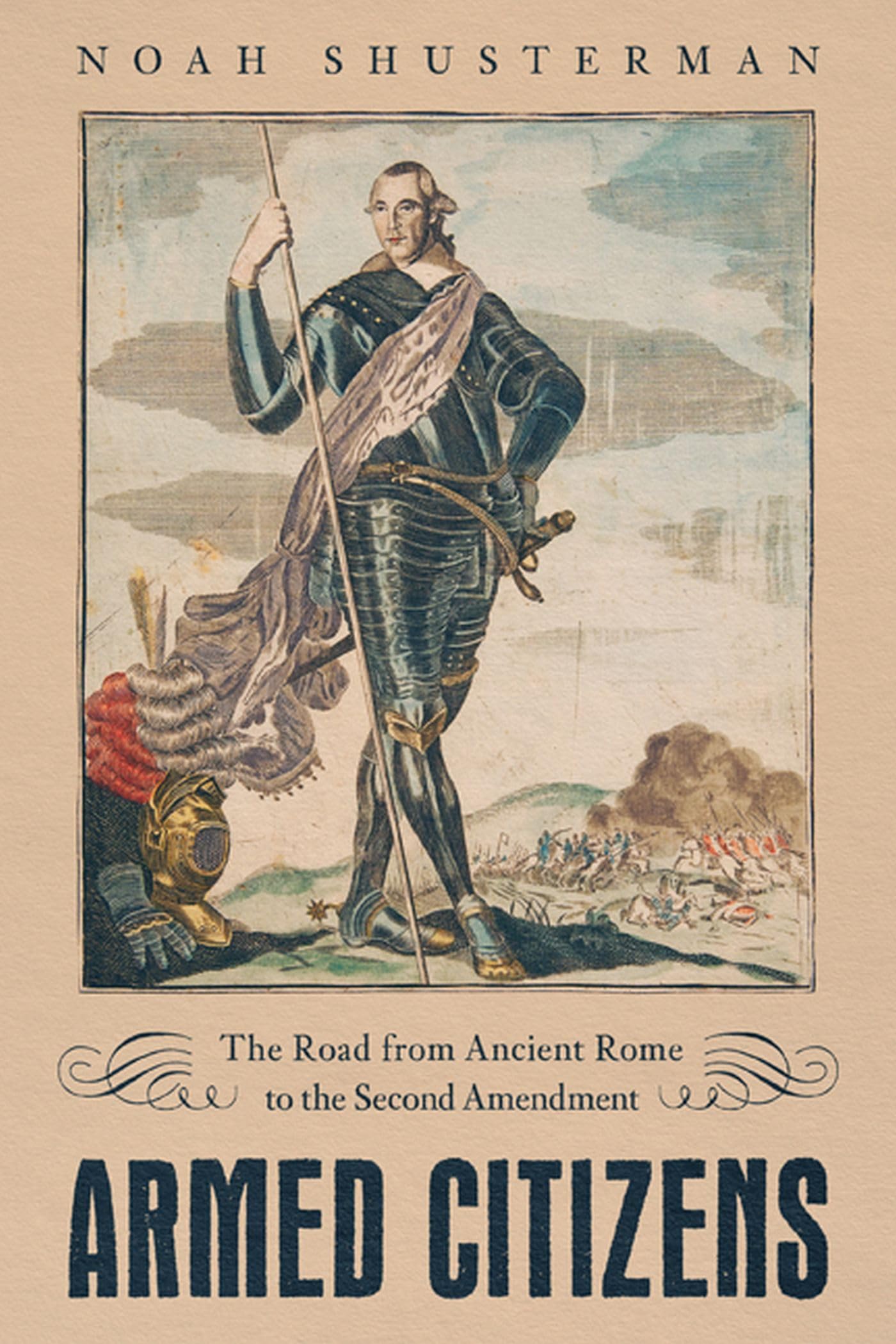 Although much has changed in the United States since the eighteenth century, our framework for gun laws still largely relies on the Second Amendment and the patterns that emerged in the colonial era. America has long been a heavily armed, and racially divided, society, yet few citizens understand either why militias appealed to the founding fathers or the role that militias played in North American rebellions, in which they often functioned as repressive-and racist-domestic forces.
Although much has changed in the United States since the eighteenth century, our framework for gun laws still largely relies on the Second Amendment and the patterns that emerged in the colonial era. America has long been a heavily armed, and racially divided, society, yet few citizens understand either why militias appealed to the founding fathers or the role that militias played in North American rebellions, in which they often functioned as repressive-and racist-domestic forces.
In "Armed Citizens," Noah Shusterman explains for a general reader what eighteenth-century militias were and why the authors of the Constitution believed them to be necessary to the security of a free state. - Publisher's Description
Request this Title
New Histories of Gun Rights and Regulation: Essays on the Place of Guns in American Law and Society
Blocher, Joseph; Charles, Jacob; Miller, Darrell (2023)
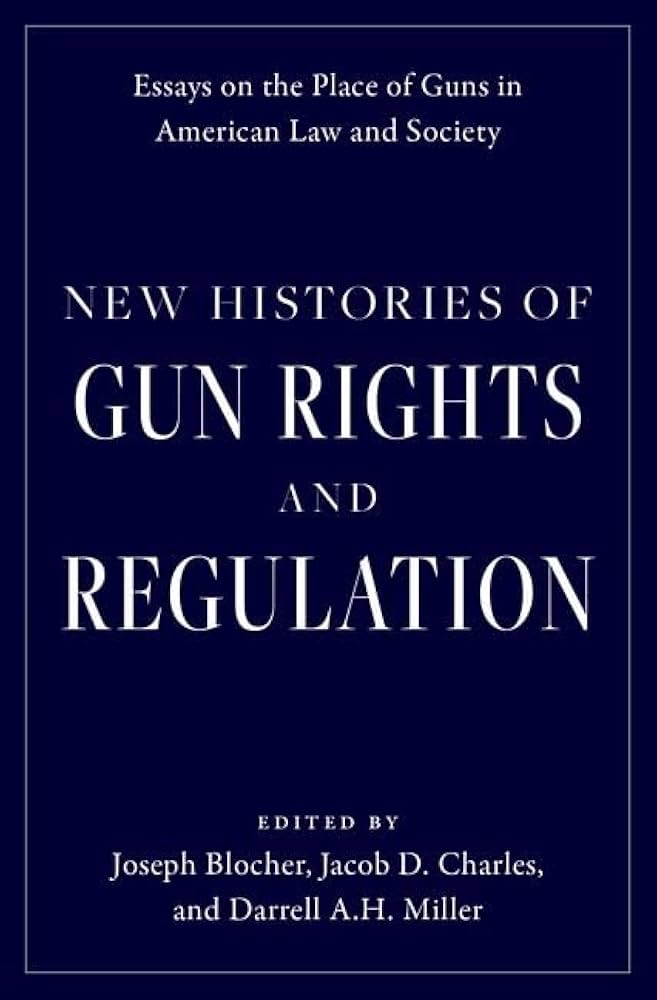 In 2008, the Supreme Court issued a groundbreaking opinion in District of Columbia v. Heller. Relying heavily on historical sources, the Court concluded that the Second Amendment to the U.S. Constitution guarantees a personal right to keep and bear arms for purposes unrelated to a government-run militia. Heller not only marked the judicial culmination of a decades-long historical dispute, but also ushered in a new wave of legal challenges that in turn raised the need for further scholarship on the historical scope of gun rights and regulation in Anglo-American history.
In 2008, the Supreme Court issued a groundbreaking opinion in District of Columbia v. Heller. Relying heavily on historical sources, the Court concluded that the Second Amendment to the U.S. Constitution guarantees a personal right to keep and bear arms for purposes unrelated to a government-run militia. Heller not only marked the judicial culmination of a decades-long historical dispute, but also ushered in a new wave of legal challenges that in turn raised the need for further scholarship on the historical scope of gun rights and regulation in Anglo-American history.
In hundreds of cases over the next 15 years, judges relied on both historical research and contemporary evidence in evaluating the constitutionality of gun laws designed to address contemporary problems of the most visceral kind. - Publisher's Description
Request this Title
Baby Ninth Amendments: How Americans Embraced Unenumerated Rights and Why It Matters
Sanders, Anthony (2023)
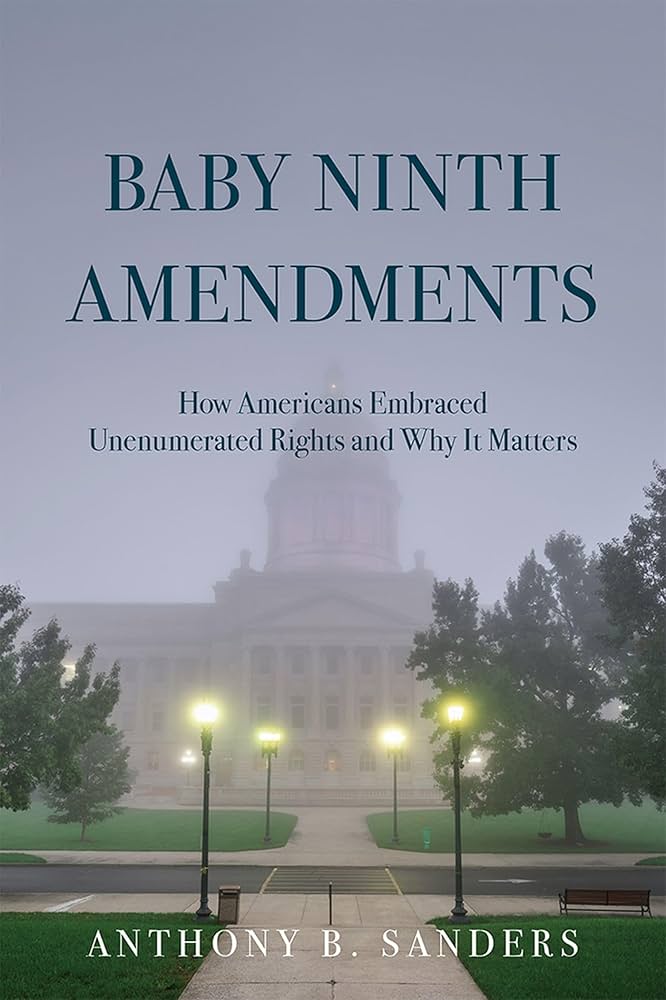 Listing every right that a constitution should protect is hard. American constitution drafters often list a few famous rights such as freedom of speech, protection against unreasonable searches and seizures, and free exercise of religion, plus a handful of others. However, we do not need to enumerate every liberty because there is another way to protect them: an "etcetera clause."
Listing every right that a constitution should protect is hard. American constitution drafters often list a few famous rights such as freedom of speech, protection against unreasonable searches and seizures, and free exercise of religion, plus a handful of others. However, we do not need to enumerate every liberty because there is another way to protect them: an "etcetera clause."
It states that there are other rights beyond those specifically listed: "The enumeration in the Constitution, of certain rights, shall not be construed to deny or disparage others retained by the people." Yet scholars are divided on whether the Ninth Amendment itself actually does protect unenumerated rights, and the Supreme Court has almost entirely ignored it. Regardless of what the Ninth Amendment means, two-thirds of state constitutions have equivalent provisions, or "Baby Ninth Amendments," worded similarly to the Ninth Amendment. This book is the story of how the "Baby Ninths" came to be and what they mean. - Publisher's Description
Request this Title
Due Process as American Democracy
Redish, Martin (2024)
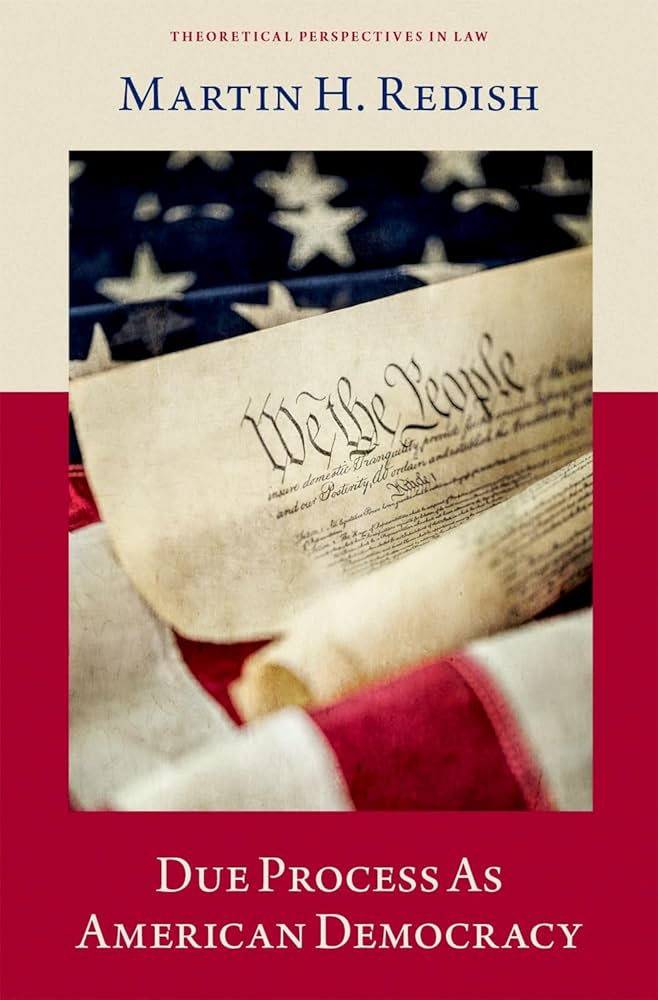 Procedural due process guarantees to individual members of the polity that government will treat each of them with fairness and respect when seeking to take their life, liberty or property.
Procedural due process guarantees to individual members of the polity that government will treat each of them with fairness and respect when seeking to take their life, liberty or property.
Although enshrined in the US Constitution's Fifth and Fourteenth Amendments, the scope of those guarantees has long been a source of public and academic debate.
"Due Process as American Democracy" develops an entirely new approach to the procedural due process, grounded in foundational precepts of American political theory. It argues that American political thought comes from an adversarial understanding of democracy where individuals need to protect their own interests, because no one else can be trusted to do so. - Publisher's Description
Request this Title
Ethics for Contemporary Bureaucrats: Navigating Constitutional Crossroads
Elias, Nicole; Olejarski, Amanda (2020)
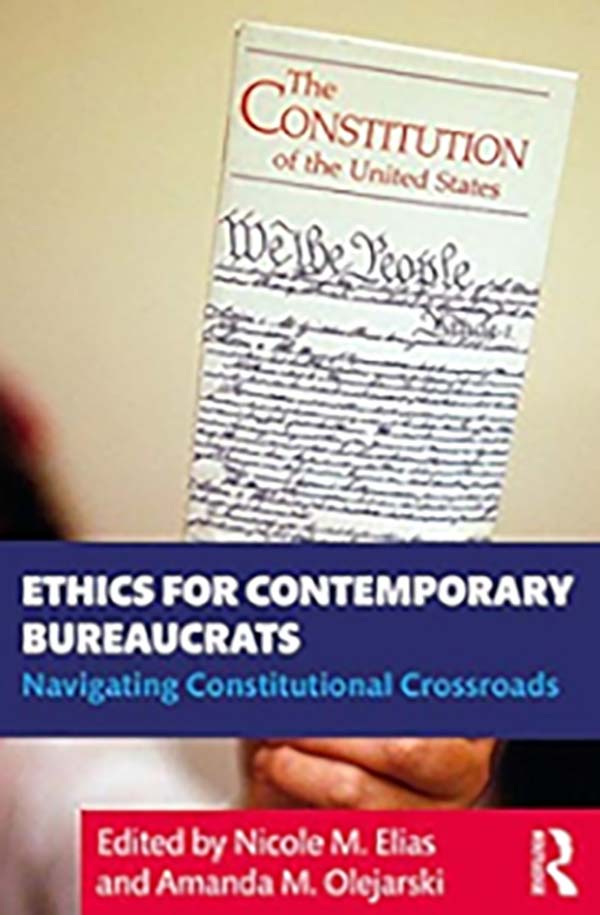 In the current U.S. context, we are facing a Constitutional crisis with frequent government shutdowns and new policy debates surrounding immigration, climate change, budgeting practices, and the balance of power. With competing interests, unclear policy, and inconsistent leadership directives, the question becomes: How do contemporary bureaucrats make sense of this ethically turbulent environment?
In the current U.S. context, we are facing a Constitutional crisis with frequent government shutdowns and new policy debates surrounding immigration, climate change, budgeting practices, and the balance of power. With competing interests, unclear policy, and inconsistent leadership directives, the question becomes: How do contemporary bureaucrats make sense of this ethically turbulent environment?
This collection provides a lens for viewing administrative decision-making and behavior from a Constitutional basis, as contemporary bureaucrats attempt to navigate uncharted territory. "Ethics for Contemporary Bureaucrats" is organized around three constitutional values: freedom, property, and social equity. These themes are based on emerging trends in public administration and balanced with traditional ethical models. Each chapter provides an overview of a contemporary ethical issue, identifies key actors, institutions, legal and legislative policy, and offers normative and practical recommendations to address the challenges the issue poses.
Rooted in a respected and time-tested intellectual history, this volume speaks to bureaucrats in a modern era of governance. It is ideally suited to educate students, scholars, and public servants on Constitutional values and legal precedent as a basis for ethics in the public sector. - Publisher's Description
Request this Title
We the Elites: Why the US Constitution Serves the Few
Ovetz, Robert (2022)
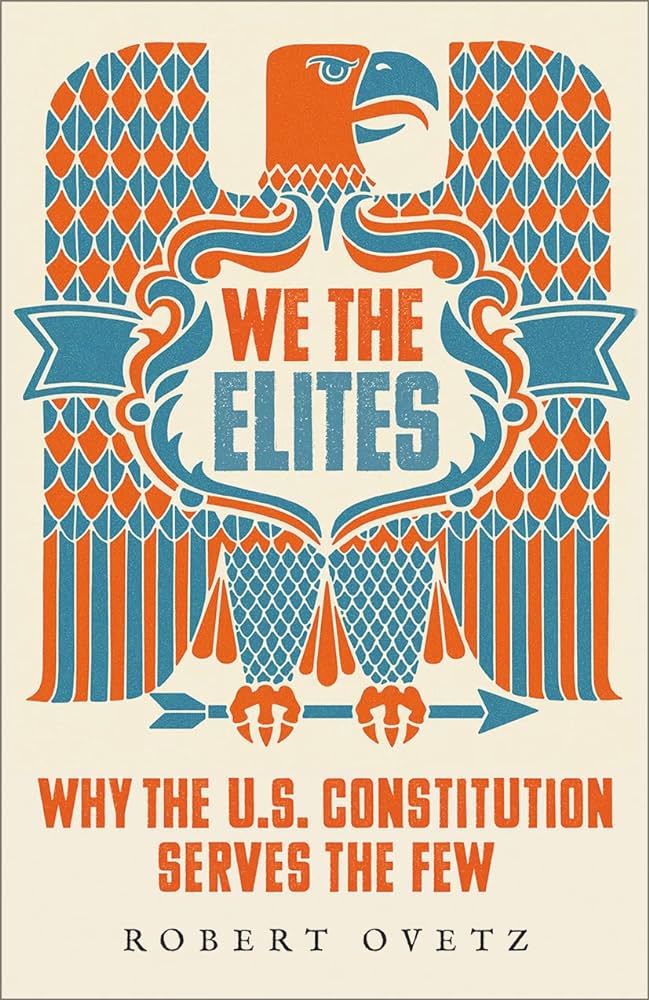 Written by 55 of the richest white men of early America, and signed by only 39 of them, the constitution is the sacred text of American nationalism. Popular perceptions of it are mired in idolatry, myth and misinformation - many Americans have opinions on the constitution but have no idea what's in it.
Written by 55 of the richest white men of early America, and signed by only 39 of them, the constitution is the sacred text of American nationalism. Popular perceptions of it are mired in idolatry, myth and misinformation - many Americans have opinions on the constitution but have no idea what's in it.
This book exposes the constitution for what it is – a rulebook to protect capitalism for the elites. The misplaced faith of social movements in the constitution as a framework for achieving justice actually obstructs social change - incessant lengthy election cycles, staggered terms and legislative sessions have kept those movements trapped in a redundant loop. This stymies progress on issues like labour rights, public health and climate change, projecting the American people and rest of the world towards destruction. Robert Ovetz's reading of the constitution shows that the system isn't broken. Far from it. It works as it was designed to do. - Publisher's Description
Request this Title
The Constitution and American Racism: Setting a Course for Lasting Injustice
Madden, David (2021)
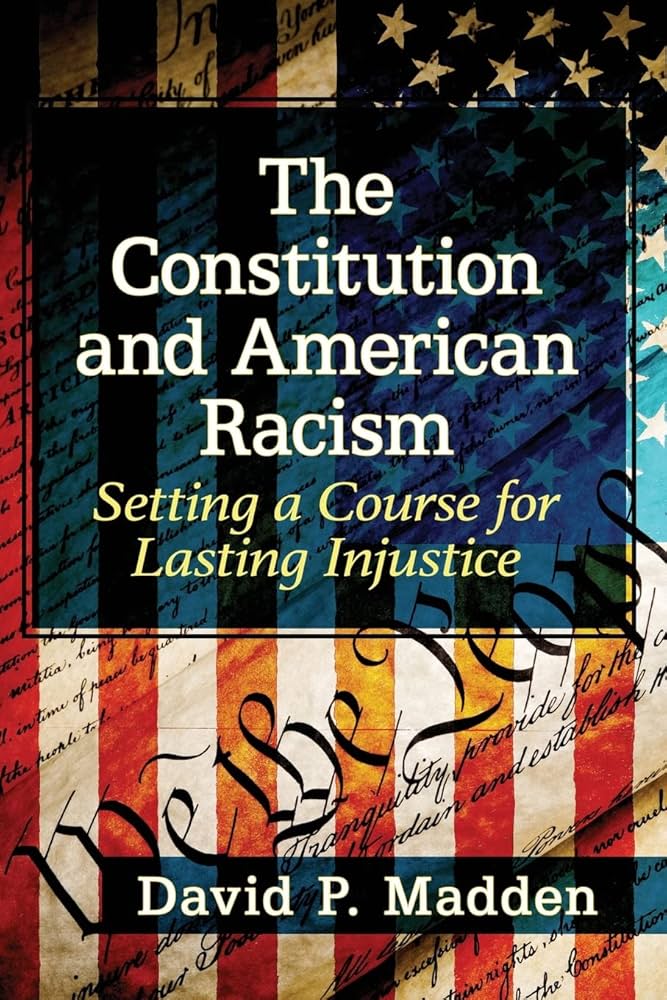 Racism has permeated the workings of the U.S. Constitution since ratification. At the 1787 Constitutional Convention, supporters of slavery ensured it was protected by rule of law. The federal government upheld slavery until it was abolished by the Civil War; then supported the South's Jim Crow power structure.
Racism has permeated the workings of the U.S. Constitution since ratification. At the 1787 Constitutional Convention, supporters of slavery ensured it was protected by rule of law. The federal government upheld slavery until it was abolished by the Civil War; then supported the South's Jim Crow power structure.
From Reconstruction through the Civil Rights era until today, veneration of the Constitution has not prevented lynching, segregation, voter intimidation or police brutality against people of color. In 2016, the Electoral College-a constitutional accommodation for slaveholding aristocrats who feared popular government-gave the presidency to the candidate who lost the popular vote by the widest margin in U.S. history. This book describes how pernicious flaws in the Constitution, included to legalize profiting from human bondage, perpetuate systemic racism, economic inequality and the subversion of democracy. - Publisher's Description
Request this Title
